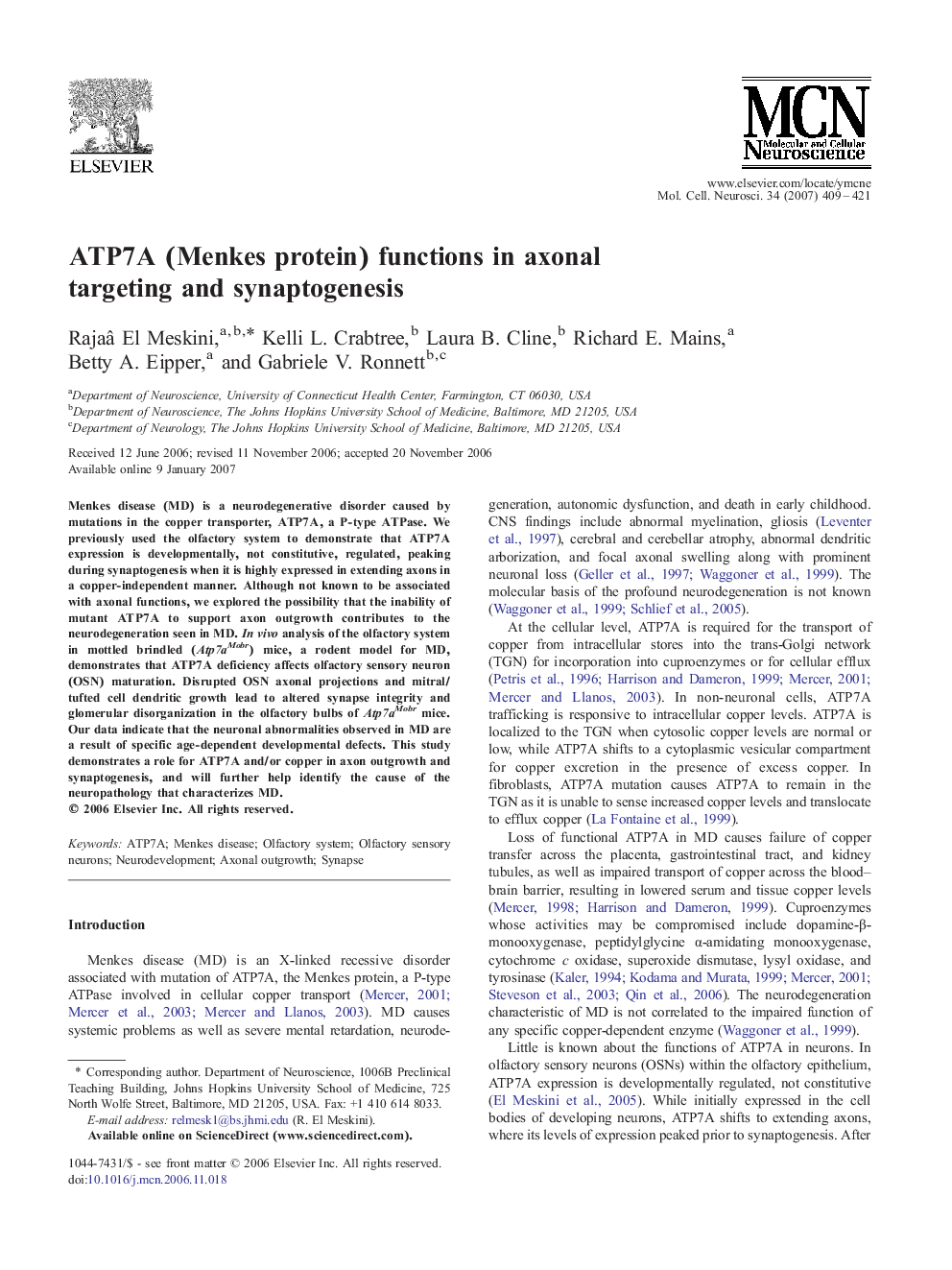| Article ID | Journal | Published Year | Pages | File Type |
|---|---|---|---|---|
| 2199291 | Molecular and Cellular Neuroscience | 2007 | 13 Pages |
Menkes disease (MD) is a neurodegenerative disorder caused by mutations in the copper transporter, ATP7A, a P-type ATPase. We previously used the olfactory system to demonstrate that ATP7A expression is developmentally, not constitutive, regulated, peaking during synaptogenesis when it is highly expressed in extending axons in a copper-independent manner. Although not known to be associated with axonal functions, we explored the possibility that the inability of mutant ATP7A to support axon outgrowth contributes to the neurodegeneration seen in MD. In vivo analysis of the olfactory system in mottled brindled (Atp7aMobr) mice, a rodent model for MD, demonstrates that ATP7A deficiency affects olfactory sensory neuron (OSN) maturation. Disrupted OSN axonal projections and mitral/tufted cell dendritic growth lead to altered synapse integrity and glomerular disorganization in the olfactory bulbs of Atp7aMobr mice. Our data indicate that the neuronal abnormalities observed in MD are a result of specific age-dependent developmental defects. This study demonstrates a role for ATP7A and/or copper in axon outgrowth and synaptogenesis, and will further help identify the cause of the neuropathology that characterizes MD.
